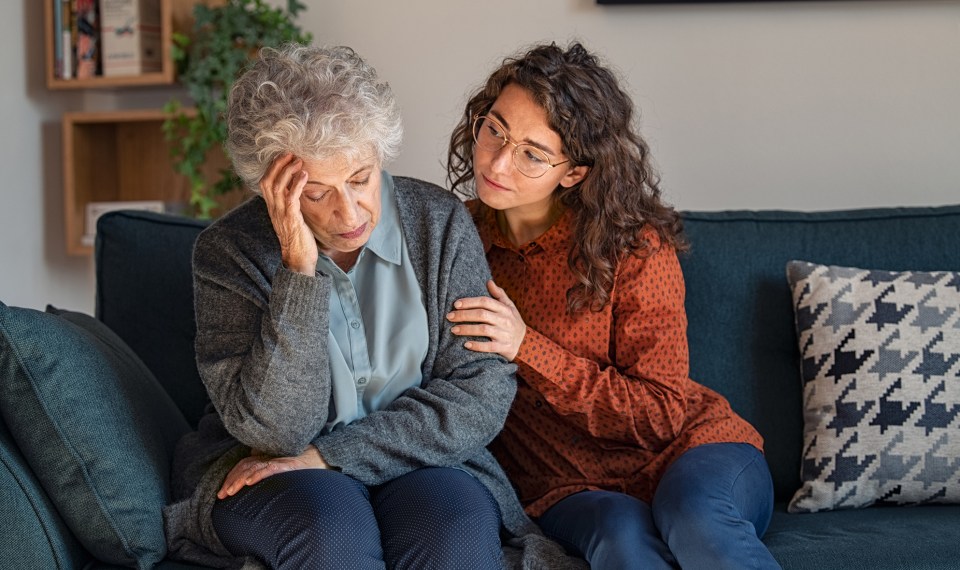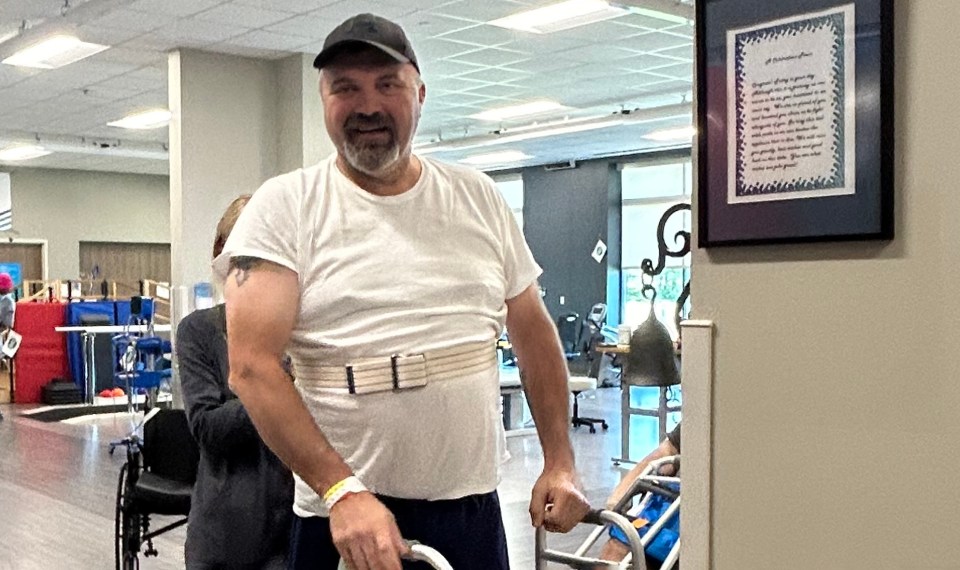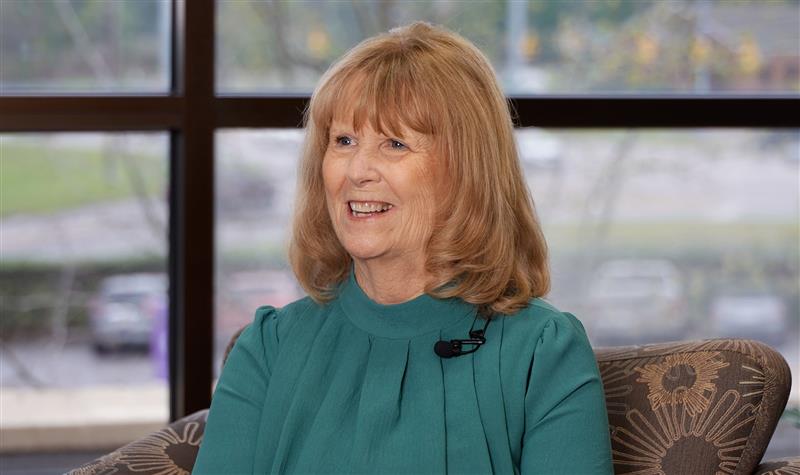The brain is a complex organ that controls the body’s sensory and motor functions. The brain also performs important functions such as sensing, thinking, remembering, understanding, planning, reasoning and problem-solving. Stroke affects the arteries in the brain and leading to the brain. When a stroke occurs in the region of the brain responsible for memory, it often leads to memory loss.
Over a third of symptomatic stroke patients experience memory deficits and the condition is more common in older stroke survivors. Following stroke, memory can improve spontaneously through rehabilitation. Up to one-fifth of stroke survivors with mild cognitive impairment fully recover in the first six months after stroke.
While some stroke survivors experience only mild memory loss, in some cases it can be severe. But even when problems with memory, concentration and learning aren’t severe, they can negatively impact quality of life.
How does a Stroke Affect Memory?
Memory challenges after stroke are not the same for everyone. They can present in many ways. For example, you may:
- Retain information for only a short time. You may be able to follow the first few instructions but not retain the full steps. Some stroke survivors have difficulty remembering their medications or what tasks they performed earlier in the day.
- Struggle with learning new information. Retrieving and relearning information is difficult. It may be necessary to have information repeated multiple times.
- Have trouble carrying information from one setting to another. The tasks you performed in the hospital or rehab setting may not transfer to home. You may be unable to use skills, like safely moving from the wheelchair to bed or commode, that you learned in a healthcare setting once you return home.
- Be unable to recall specific details. You may realize you had a visitor but be confused about what time and day they visited you.
Signs of Post-Stroke Cognitive Impairment
Cognition is the way your brain understands, organizes and stores information. Signs of cognitive problems includes:
- Difficulty with thinking and concentration – An inability to concentrate leads to thinking and memory problems, especially in the early post-stroke stages.
- Memory problems – Stroke patients may experience loss of short-term or long-term memory. Often short-term memory is more affected than long-term memory following a stroke.
- Confusion and denial – After a stroke, you may not recognize the effects of the injury. Examples include not being aware you can’t move a limb, trouble understanding why you are in the hospital, or believing the affected limbs do not belong to you.
- Difficulty moving or controlling your body (apraxia) – You may be unable to move a body part even though you understand the request and are trying. You may also move very slowly or show hesitation before moving.
- Loss of awareness of one side of the body (spatial neglect) – You may ignore things on the affected side of the body. For instance, you may not notice food on one side of the plate, be unaware of people or objects on the affected side, or read only one side of a book or page.
- Visual perception problems – This can lead to difficulty judging distances or depths, pinpointing an object in a cluttered space, or following directions such as “in front of” or “beside”.
- Difficulty with recognition (agnosia) – Problems remembering the way something feels, looks, or sounds so you can recognize it is known as agnosia. You may even have difficulty recognizing faces of people you know.
- Inability to problem solve or plan (executive function) – Stroke can hinder your ability to perform automatic processes like changing a TV channel, completing a task such as dressing, or adjusting your thinking in response to what is happening around you.
Since some cognitive problems can be difficult to identify in the hospital setting, it is important that you be reassessed periodically after discharge. This follow-up will ensure you receive the ongoing care you need.
Types of Stroke-Related Memory Loss
Some common types of memory loss seen in stroke patients include:
- Mild cognitive impairment. Stroke survivors who experience this type of memory loss are usually able to function but, according to the American Stroke Association, approximately half of stroke patients with mild cognitive impairment develop dementia within 3 years.
- Delirium. Defined as a sudden onset of severe confusion, disorientation and inability to think or remember clearly, delirium is seen in nearly 1 out of every 8 stroke patients. The condition is associated with poorer outcomes and greater dependency upon hospital discharge. Identifying the early signs of delirium and initiating prompt treatment could improve outcomes.
- Dementia. The condition is a cognitive deterioration that interferes with daily functioning. When dementia develops after a stroke and no other cause can be identified, it is called vascular dementia. Vascular dementia is the second most common form of dementia, after Alzheimer’s disease.
Contributing Factors and Memory Loss
While memory loss can be directly related to stroke, it may also be associated with, or worsened by, other factors or conditions. Addressing the following issues may help restore or improve memory:
- Use of certain medications
- Alcohol, tobacco or drug use
- Sleep deprivation
- Depression
- Stress
- Poor nutrition
- Other medical conditions
Treating Memory Loss in Stroke Survivors
There is no medical treatment available to treat memory loss in stroke patients, although medications used in the treatment of Alzheimer’s disease are sometimes prescribed for stroke patients who have been diagnosed with vascular dementia. However, there is little to no research on the effectiveness of these medications in stroke related memory loss.
Successful rehabilitation for memory loss after stroke depends on the extent of brain damage caused by the stroke, early initiation of rehabilitation therapy, caregiver involvement and the skill of the rehabilitation team.
Inpatient rehabilitation provides the opportunity for intensive treatment working with speech, occupational and physical therapists to improve memory and physical health. Depending on the individual need, therapy may focus on:
- Improving cognitive abilities such as memory, processing, problem-solving, social skills, judgment and safety awareness
- Regaining lost abilities including listening skills, writing and comprehension
- Performing activities of daily living such as relearning signatures, medication management and handling your finances
Repetition is an important part of memory rehabilitation. Exercising your mind is just as important as exercising your body. Memory building activities encourage socialization and improve concentration. Traditional board games and card games (like Go Fish), puzzles, word searches, crossword puzzles and trivia games can serve as challenging memory exercises.
Post-stroke rehabilitation is complex and should be unique to you. It requires a plan designed to meet your specific needs, enabling you to reach your highest level of function and independence. During rehab you will learn techniques to help you deal with your memory loss and be connected to community resources that can help you prepare to safely return home.
Tips for Managing Memory Loss After Stroke
- Free yourself of distractions. Turn off the TV or move to a quiet space when trying to concentrate. Remove clutter from your work area when cooking or performing tasks.
- Ask others to break down information into easy steps and deliver it one step at a time. Don’t hesitate to ask them to repeat as needed or repeat it back to them in your own words.
- Use a calendar for activities, appointments and special dates.
- Keep a notebook at hand to write down important information.
- Be routine. Set a time for specific daily and weekly tasks to help you remember.
- Label closets and shelves to remind you where things go.
- Use memory clues. This can be an image, a song or acronym to help you recall tasks or information.
- Don’t overdo it. If you find yourself struggling with concentration, step away for a while.
- Get organized. Create a specific place for items. Hang keys on a hook, place your reading glasses on a side table and store medications where you can remember to take them. Put things away in the correct place every time.
Helping Someone with Memory Loss
If you have a family member or friend suffering from post-stroke memory loss, there are ways you can help.
- Be patient. Encourage your loved one to remember any details they can and don’t rush them.
- Speak clearly and slowly and be willing to repeat information as often as needed.
- Provide information to help your loved one recognize and remember. “Your neighbor Bob is here to visit.”
- Keep things routine. Don’t overstimulate. Suggest a break if things seem overwhelming.
- Be supportive and reassuring.
- Encourage routine. Set a time for specific tasks such as eating, exercising and personal grooming to make it easier to remember.
If you or a loved one have experienced memory loss after stroke, allow yourself time to recover. While it’s not something you can control, you can take steps to organize tasks and manage changes.
The content of this site is for informational purposes only and should not be taken as professional medical advice. Always seek the advice of your physician or other qualified healthcare provider with any questions you may have regarding any medical conditions or treatments.



